第32章 XXII. THE BESTOWING VIRTUE.(1)
1.
When Zarathustra had taken leave of the town to which his heart was attached, the name of which is "The Pied Cow," there followed him many people who called themselves his disciples, and kept him company. Thus came they to a crossroad. Then Zarathustra told them that he now wanted to go alone; for he was fond of going alone. His disciples, however, presented him at his departure with a staff, on the golden handle of which a serpent twined round the sun. Zarathustra rejoiced on account of the staff, and supported himself thereon; then spake he thus to his disciples:
Tell me, pray: how came gold to the highest value? Because it is uncommon, and unprofiting, and beaming, and soft in lustre; it always bestoweth itself.
Only as image of the highest virtue came gold to the highest value.
Goldlike, beameth the glance of the bestower. Gold-lustre maketh peace between moon and sun.
Uncommon is the highest virtue, and unprofiting, beaming is it, and soft of lustre: a bestowing virtue is the highest virtue.
Verily, I divine you well, my disciples: ye strive like me for the bestowing virtue. What should ye have in common with cats and wolves?
It is your thirst to become sacrifices and gifts yourselves: and therefore have ye the thirst to accumulate all riches in your soul.
Insatiably striveth your soul for treasures and jewels, because your virtue is insatiable in desiring to bestow.
Ye constrain all things to flow towards you and into you, so that they shall flow back again out of your fountain as the gifts of your love.
Verily, an appropriator of all values must such bestowing love become; but healthy and holy, call I this selfishness.--Another selfishness is there, an all-too-poor and hungry kind, which would always steal--the selfishness of the sick, the sickly selfishness.
With the eye of the thief it looketh upon all that is lustrous; with the craving of hunger it measureth him who hath abundance; and ever doth it prowl round the tables of bestowers.
Sickness speaketh in such craving, and invisible degeneration; of a sickly body, speaketh the larcenous craving of this selfishness.
Tell me, my brother, what do we think bad, and worst of all? Is it not DEGENERATION?--And we always suspect degeneration when the bestowing soul is lacking.
Upward goeth our course from genera on to super-genera. But a horror to us is the degenerating sense, which saith: "All for myself."Upward soareth our sense: thus is it a simile of our body, a simile of an elevation. Such similes of elevations are the names of the virtues.
Thus goeth the body through history, a becomer and fighter. And the spirit--what is it to the body? Its fights' and victories' herald, its companion and echo.
Similes, are all names of good and evil; they do not speak out, they only hint. A fool who seeketh knowledge from them!
Give heed, my brethren, to every hour when your spirit would speak in similes: there is the origin of your virtue.
Elevated is then your body, and raised up; with its delight, enraptureth it the spirit; so that it becometh creator, and valuer, and lover, and everything's benefactor.
When your heart overfloweth broad and full like the river, a blessing and a danger to the lowlanders: there is the origin of your virtue.
When ye are exalted above praise and blame, and your will would command all things, as a loving one's will: there is the origin of your virtue.
When ye despise pleasant things, and the effeminate couch, and cannot couch far enough from the effeminate: there is the origin of your virtue.
When ye are willers of one will, and when that change of every need is needful to you: there is the origin of your virtue.
Verily, a new good and evil is it! Verily, a new deep murmuring, and the voice of a new fountain!
Power is it, this new virtue; a ruling thought is it, and around it a subtle soul: a golden sun, with the serpent of knowledge around it.
2.
Here paused Zarathustra awhile, and looked lovingly on his disciples. Then he continued to speak thus--and his voice had changed: